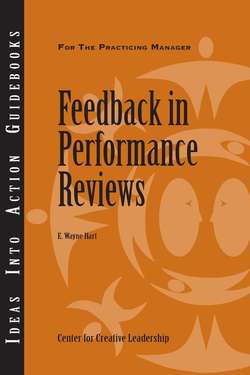Читать книгу Feedback in Performance Reviews - E. Wayne Hart - Страница 8
На сайте Литреса книга снята с продажи.
ОглавлениеFeedback Gone Awry
Brenda was an enthusiastic, bright, and talented computer technician. Her manager, Ethan, saw a great future for her at the Community Health Center, where she supported medical staff in the Women’s Health Department. Despite Brenda’s track record of quickly solving system user problems, there had been complaints about her “brash” attitude. Her internal customers felt belittled by her use of phrases like “user error,” “what’s your problem?” and “why didn’t you…?”
At their annual performance review, Ethan coached Brenda with a little feedback on how to better word things. “Instead of ‘user error,’ try saying, ‘entry glitch.’”
“I don’t see why I should have to mince words,” she protested. “They don’t listen to me anyway. They don’t want to learn anything—they just want a quick fix.”
Ethan was more than a little discouraged by Brenda’s defensiveness, but he recognized that her edgy response to him was exactly the type of behavior that was alienating the medical staff. He tried another approach, explaining, “It’s about customer service. Try speaking in their language. For example, instead of asking, ‘What is your problem with the computer?’ ask, ‘What are the symptoms?’”
“I’ve told some of them three or four times that they have to reenter their pass codes, and they won’t do it. Their attitude is the problem!” Brenda was becoming more agitated. Ethan wanted to calm her down and get back to the subject.
“Brenda, you’re one of the sharpest problem solvers on the team. But if you don’t improve your reputation with the medical staff, I will be forced to make some changes.”
“Now you’re threatening me,” Brenda exclaimed, “when their laziness is the problem? Why should I have to make the changes?”
Ethan’s discouragement was now joined by a sense of being cornered. He did not have a “next move” in mind, so he asked Brenda to think about it and adjourned the meeting, scheduling a follow-up conversation for the next week.
Ethan’s encounter with Brenda is all too common. He thoughtfully offered her advice on how to act in the future. Yet Brenda was argumentative and defensive. Behind such behavior she likely felt offended, hurt, threatened, or angry, whether or not she was aware of it. She interpreted the situation exclusively from her own point of view. She did not understand what members of the medical staff experienced when she said things to them in certain ways. Brenda lacked self-awareness, an understanding of how she had behaved, and a realization of the impact that her behavior had on others. She did not receive Ethan’s feedback well, and a developmental opportunity turned into a stalemate. How could Ethan have handled it better?
